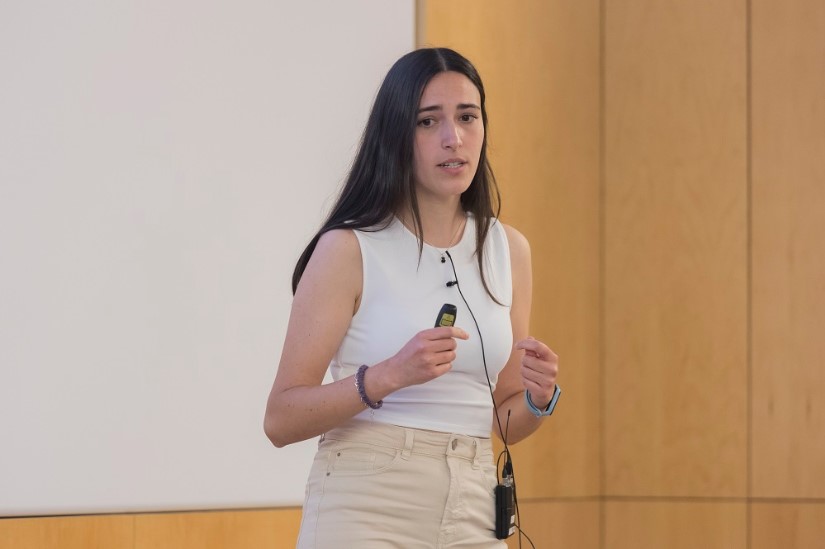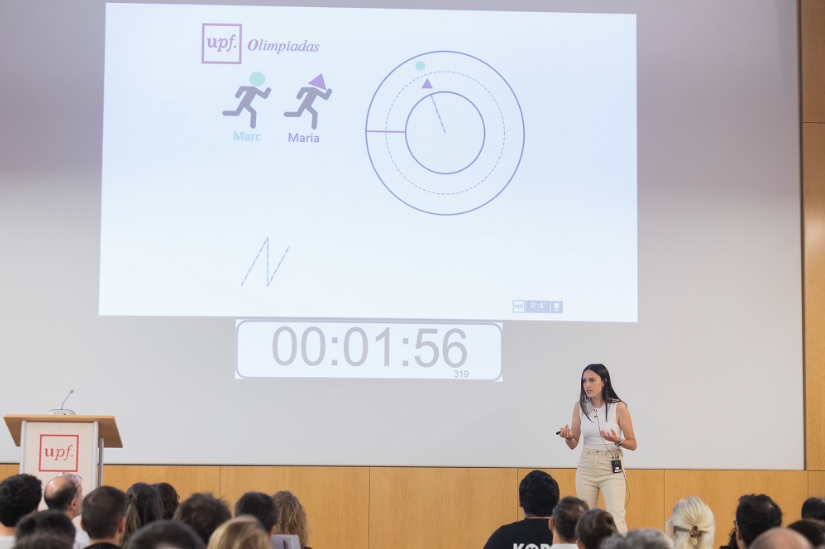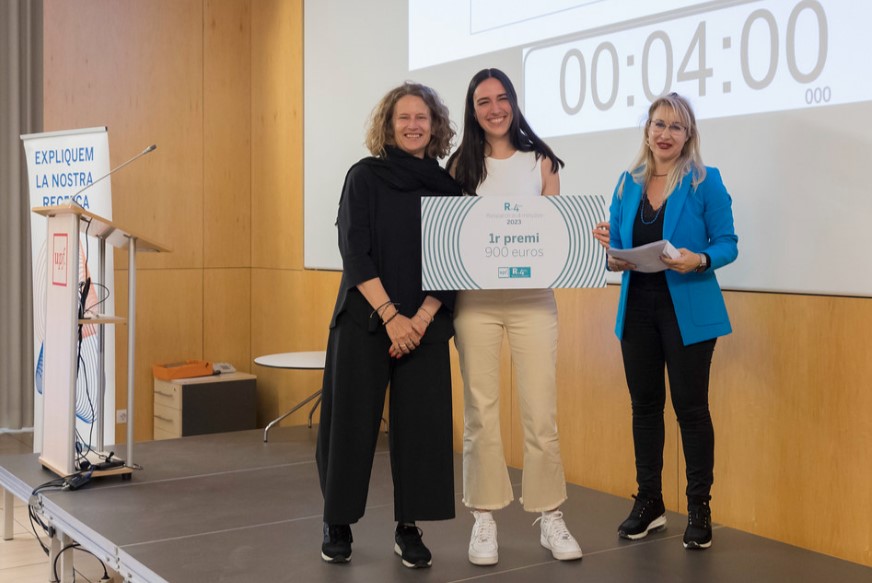“We try to analyse brain signals by computer and greatly simplify research into the focus of epilepsy”
“We try to analyse brain signals by computer and greatly simplify research into the focus of epilepsy”
“We try to analyse brain signals by computer and greatly simplify research into the focus of epilepsy”
We are talking to Anaïs Espinoso Palacín, the winner of the eighth edition of the RIN4’ competition, in which doctoral students explain their research to a lay audience in four minutes.

Anaïs Espinosa is a student on the UPF doctoral programme in Information and Communication Technologies. She studied the bachelor’s degree in Biomedical Engineering at the UPC and then did a master’s degree in Computational Biomedical Engineering at UPF. She is currently finishing her thesis “Phase studies to analyse the brain signals of patients with epilepsy”. She is the winner of the eighth edition of the RIN4’ competition, in which doctoral students present their research to a lay audience in four minutes.
What does winning the Rin4’ mean for you?
I went in for it just to try my luck. I really liked the idea of being able to simplify my research in a short time. Winning the Rin4’ has injected me with a dose of motivation to finish my thesis and see what really interests me.
And what encouraged you to participate?
Mainly the challenge! Because like it or not, it’s four minutes of explaining but there’s a tonne of work behind that isn’t seen. In addition, I really liked the challenge of having to present to a non-specialist public. I had never spoken so many people before and it was great.
Winning the Rin4’ has injected me with a dose of motivation to finish my thesis and see what really interests me.
How did you prepare for the presentation?
I study brain signals, but from the signals I take from the brain, what I extract is something called the phase, which is basically that you consider that the signal travels around a circumference. So, when I speak to my thesis supervisor about the techniques we use, as a reference we always use runners on an athletics track, and I thought that if I had to explain my research, I would give this example.

Was the Rin4’ your first outreach experience?
It was my first experience in the field of outreach with a non-specialist public, but apart from presenting my bachelor's and master’s degree final projects, I had given some conferences where I outlined my research.
Can you explain briefly what your research consists of?
What I do is analyse the brain signals of patients with epilepsy because medication has no effect on a certain percentage of these patients. So, that means they continue to have epileptic seizures and cannot lead a normal life. In these cases, what has to be done is to remove a part of the brain which gives rise to the seizure so that they stop having them. The problem is that it is not precisely known where the focus is and what we do is analyse the brain signals, opening the cranium or inserting intracranial electrodes directly into the brain. These brain signals help us to determine which come from the epileptic focus. All of this involves a lot of work, lots of hours and lots of patients. We biomedical engineers try, by means of a variety of techniques, to analyse these signals with a computer to simplify this research into the epileptic focus.
What aroused your interest in epilepsy?
During my degree, I was rather fascinated by the subject Signal Processing and by programming, and it was through the opportunities that arose during the degree that I gained an interest. In addition, epilepsy is something you know exists, but you don’t know exactly what it is, and I wanted to enquire into it.
What is the most difficult thing to explain to the general public about this research?
People think that through my research I will save the world a bit and patients will be much better, but my research is rather to do with methods than solving. What I mean is, I know that my research won’t be used in the real world, it is simply to complement the existing notions of these brain signals.
What are your plans for the future?
I really like research and, although I love teaching and being at the university, for the time being I won’t continue in the world of academia as I would like to join a research department in a company or manage projects in the world of biomedicine to see other things and continue learning.
The key is to keep working, keep motivated and, especially, surround yourself with people who can help you.
What advice would you give to people setting out on their doctorate?
Above all, try to be constant, and if things don’t turn out, no problem, they will, because in your doctorate you try to look for something very specific, sometimes you don’t find it and it’s frustrating, but the key is to keep working, keep motivated and, especially, surround yourself with people who can help you.
Some doctoral grants don’t require doing any teaching, but I strongly recommend it, because explaining things to people who are learning is really good to familiarize yourself with these concepts and it also provides you with resources. Taking classes while you’re doing your doctorate is pretty important. I used to be quite shy, but I think that during the years of my doctorate I have especially gained the self-confidence to speak in public.

